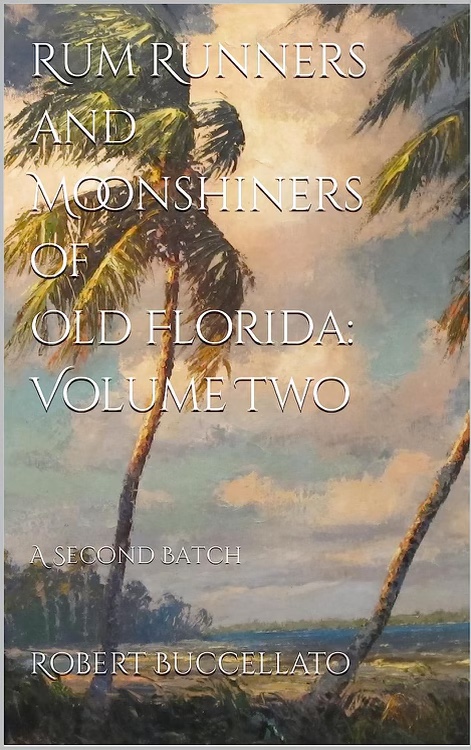This weekend was the tenth anniversary of hurricane Katrina, and I couldn’t have been more relieved that Tropical Storm Erika petered-out in the Caribbean.
When NOAA models showed the storm coming up through Florida I thought dammit, we’re finally getting back on our feet from the foreclosure crisis. The last empty house on our street just sold a week ago. This would be a terrible time for a storm to rip up the lives (and property) folks have managed to piece together post-recession.
Florida’s cities and villages are incredibly fragile. Our infrastructure has historically been driven by developers’ needs rather than the public’s interest. Life is more frequently disrupted by predictable events. It’s always going to rain in Florida, but it doesn’t have to flood. Within incorporated areas, taxes haven’t kept pace with needs for stormwater mitigation, as climate change is brings us more unpredictable and severe weather.
But, Florida officials at the Department of Environmental Protection can’t even utter the phrase “climate change.” So clearly, we’re not ready for a hurricane.
Neither was New Orleans. Check out Harry Shearer’s documentary The Big Uneasy. It’s here on Vimeo. His Katrina story is like an apocalypse-genre movie without the fiction. There was paralysis due to lack of resources, ineptitude, hubris, fraud. It reminded me of any number of B-movies involving the end of the world, where earnest engineers can’t get their message heard, because big money interests block them. The pre-conditions for the horror story of Katrina are nearly the same complaints we’ve heard in Florida for decades.
This is what we get when we trade Democracy, government by the people — “demos” — for Econo-cracy, government by the lowest bidder. For example, if it seems like kids are being treated like prisoners in their schools, that’s because privatized schools are run like private prisons. The same politicians benefitting from both schemes, so it should come as no surprise when quality learning environments are turned into warehouses where kids are measured with standardized tests, and put in the supply chain inventory. Some will feed the banking industry with their college debt. Some will feed the private prison industry because of the color of their skin. They’re all commodified.
The marriage of economy and democracy doesn’t make either one more efficient. It just robs the ability of both to serve us. It creates the opening for “those with means” to extract value from the system.
Culturally, I blame our Econo-cracy for irrational exuberance for zombie narratives, because at root, they’re a kind of capitalist snuff film. The premise is there’s a class of people who have been deprived of that which makes them human. The absence of shared humanity gives us permission to kill them. Indeed, it’s our duty (so the virus doesn’t spread). It’s all metaphoric spectacle that’s meant to feed our desire for weeding out the shambling poor from those of us with resources (who are “still alive”). It’s the ultimate free market horror show.
Democracy is high maintenance — it’s more like a garden than a flower shop. It requires constant attention, lot’s of energy, and certain kinds of nutrients to produce blooms. Gardens, like Democracy, must be kept clear of pests because once they’re introduced into the soil, they’re nearly impossible to eradicate. You will have done all the work, and they will have eaten all the produce before it can even be harvested.
Econo-cracy asks why pour effort and resources into our infrastructure and communities, when you can just wait until the next big storm, and sell off the state’s infrastructure as a “business opportunity” using public-financed debt. Who cares if we don’t control our schools, roads, prisons, utilities or any other critical infrastructure? Why should we have a problem with public goods being operated as profit centers?
Well, it gives us schools that are managed like private prisons. It gives us roads we can’t afford to drive on. It gives us infrastructure that can be held hostage while it’s crumbling to extract demands for the private investors. Anyone familiar with the 408 to I-4 interchange knows exactly what I’m talking about. They finally got a promise of tolls on I-4 and magically, plans for the interchange improvement emerged.
Most disturbingly, this commodification destroys the social contract. It makes it easier to divide us up as the disposable, shambling poor and “the survivors,” who know how to behave. It makes us less civilized. It makes us crave the apocalypse — or cheer on the next big hurricane.
I’m glad we spent the weekend looking back on Katrina. I’m equally glad this week won’t be spent obsessively reading NOAA advisories. But the larger problem remains, and won’t be fixed until we fix our government. We deserve better than Econo-cracy.
______________________
Brook Hines is a writer, photographer, activist and former alt-weekly publisher, as well as an award-winning advertising creative with more than 20 years’ experience crafting strategy in “words + pictures” for clients ranging from banking and financial services to radical nuns. She’s the Senior Political Correspondent for Progressive News Network, the Communications Chair for the Democratic Progressive Caucus of Florida, and the 2015-2016 Co-Chair of New Leaders Council, Orlando Chapter. All opinions offered here are her own. You can easily find Brook Hines on Facebook and Flickr. Read all of Brook’s articles here.








The best commentary bar none I have read in my entire life. It does not even count as a true silver lining and the clouds are gathering even worse as we speak, but I guess bad times can produce really good writing.
LikeLike
Bravo Brook. Well written. The only thing i would like to add is when profit from privatization goes to the already wealthy, we set ourselves up for the failure of the working class. Socialism is not a dirty word. We need to put people before the corporation. Corporations were created to serve the people. Not the otherway around. Move to Amend. org
LikeLike
That Big Uneasy film was a real eye-opener. Not only was the Katrina disaster solely due to failing U.S. Army Corps of Engineers levees, but the Corp knew since the 1980s they were defective (built on sand, no armor on the footings). They lied and obfuscated constantly, going so far as to oppose and win a lawsuit by a contractor who wanted to build them correctly. They claimed the storm was a freak “400 year event,” when their own findings showed a storm like Katrina can be expected every 40 years. In other words, it was guaranteed to happen; they just didn’t care.
The LSU professor assigned to investigate the cause of the disaster was fired after determining the levees were to blame, and his entire hurricane research team disbanded, after which LSU curiously received a $12 million grant, ostensibly to help the Corps of Engineers :prioritize its expenditures.” The Army Corps whistleblower who reported on the new pumps failing every test won a government service award, but has been stripped of all meaningful work.
And yes, it was all about money. Money misspent and boondoggled away, so the right people got paid, and the less important were literally swept away.
Great piece.
LikeLiked by 1 person